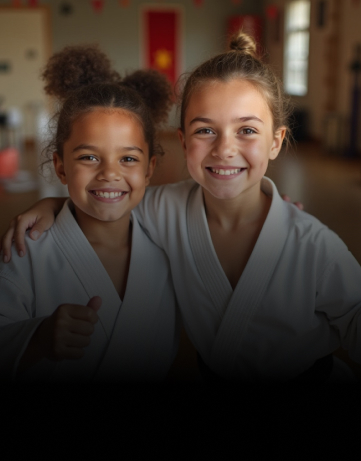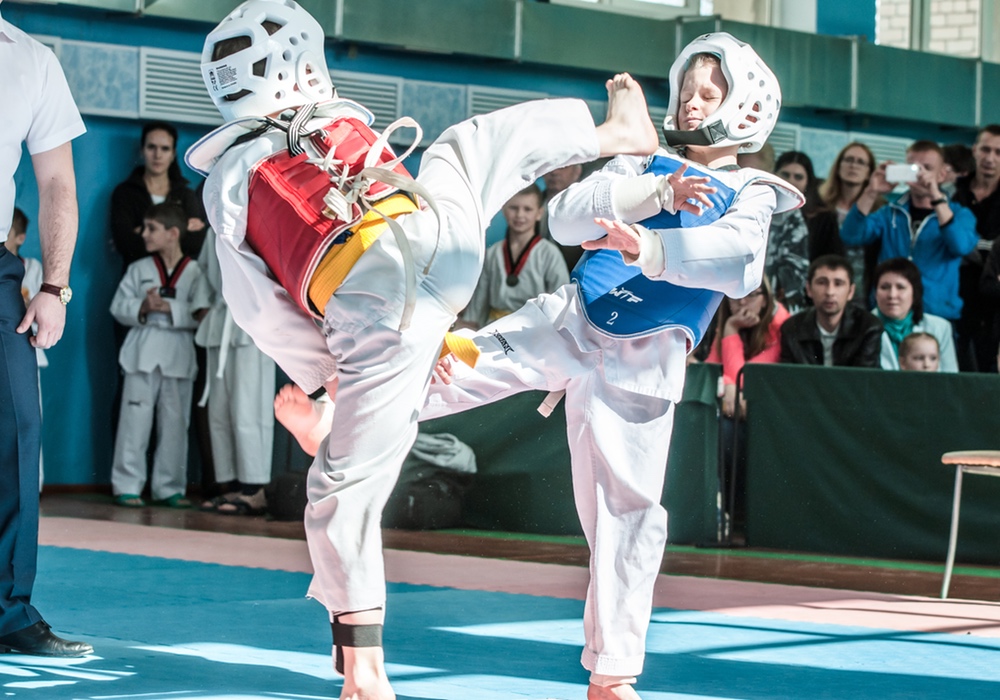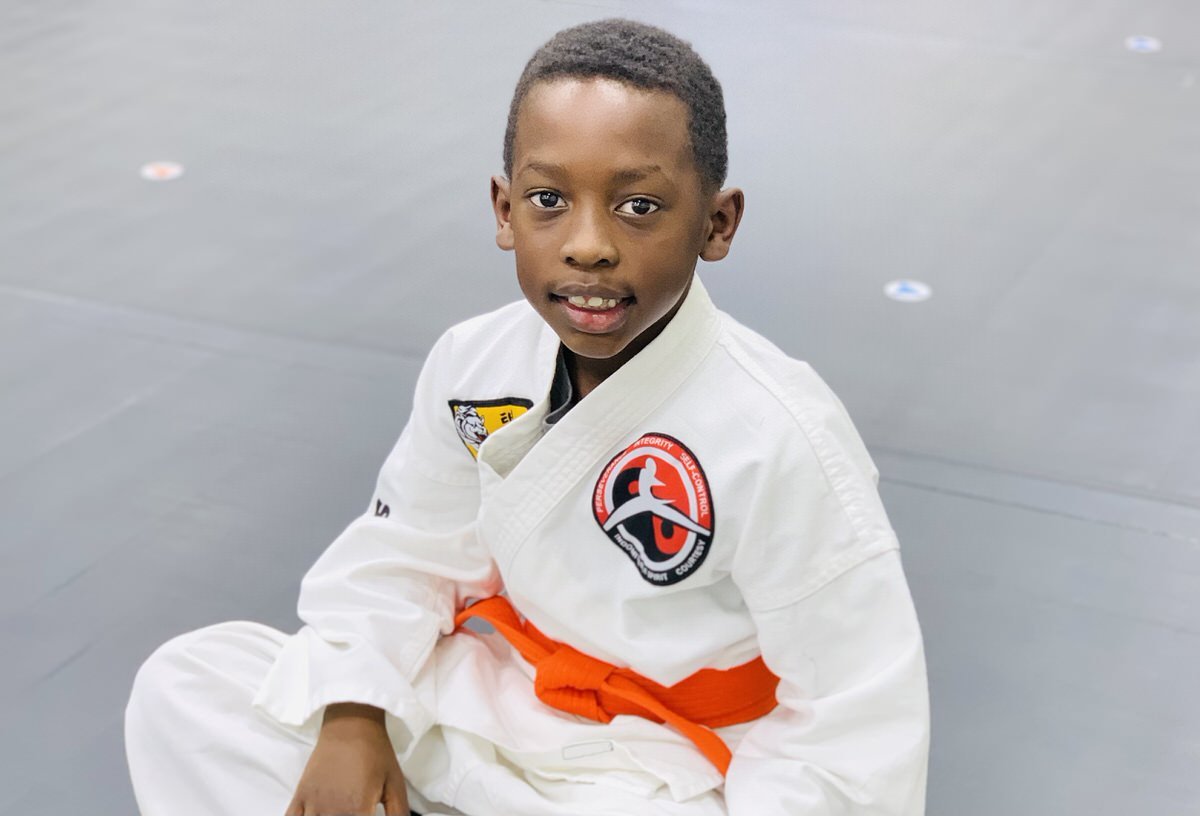Just How Karate for Kids Can Increase Self-confidence and Self-control in Youthful Martial Artists
Karate for youngsters provides a special opportunity to develop confidence and self-control in young martial artists. As they learn brand-new methods and face challenges, they not just obtain skills however likewise establish a strong sense of self-regard. This organized environment encourages them to value the trip of renovation. How does this training equate into their daily lives? Discover the deeper links that make karate greater than simply a sport.
The Value of Confidence in Youth Development
Self-confidence is a necessary building block in childhood years growth. When you nurture your child's self-worth, you empower them to encounter obstacles, take threats, and reveal themselves openly. Youngsters with confidence are a lot more going to explore brand-new tasks and social scenarios, which can result in enduring relationships and important experiences.Encouraging your youngster to get out of their comfort zone fosters durability. They find out that failure isn't completion yet instead a tipping stone to success. By commemorating their achievements, no matter just how tiny, you help them recognize their capabilities and worth.In this trip, support and favorable support from you play an essential function. Whether it's with appreciation or just being present, your participation improves their self-confidence. As they expand, this confidence becomes a lifelong possession, outfitting them to navigate both difficulties and possibilities with a strong feeling of self.
Just How Martial Arts Teaches Technique and Focus
Karate helps you construct self-control and emphasis via its organized training program. As you exercise mindfulness throughout each session, you'll discover to focus far better both on and off the floor covering. Plus, setting and achieving objectives in karate reinforces your capacity to stay fully commited and conscientious.
Structured Training Regimen
While you engage in karate training, you'll rapidly discover just how an organized routine infuses technique and focus in young professionals. Each course adheres to a specific layout, including warm-ups, strategy practice, and sparring. This uniformity teaches you to devote and respect the procedure to enhancement. As you find out methods and kinds, you create a sense of obligation for your very own progress.The structured setting motivates you to establish goals, whether understanding a new belt or developing a kata. You'll locate that remaining focused during classes and drills develops your focus. The discipline you grow in karate extends past the dojo, positively affecting your schoolwork and day-to-day regimens. Each session enhances the importance of dedication, helping you turn into a more regimented individual.
Mindfulness in Technique
As you practice karate, you'll find that mindfulness becomes a necessary component of your training. Each move needs your complete interest, helping you remain concentrated on the existing minute. You'll find out to tune out diversions and focus on your breathing, motions, and intents. This heightened recognition develops your reflexes and improves your discipline.During sparring or kinds, you'll uncover the importance of being psychologically existing - Karate Salisbury MD. You'll discover how this focus not just improves your method yet likewise develops your self-confidence. By exercising mindfulness in martial arts, you grow patience and strength, vital traits that prolong past the dojo. In this way, karate shows you to harness your mind, aiding you establish a self-displined technique to obstacles both on and off the floor covering

Objective Setting Techniques
Establishing objectives in karate isn't simply regarding earning belts; it's a powerful method to grow technique and focus. When you establish certain, attainable targets, you develop a roadmap for your progression. Rather of simply aiming to improve your kicks, try focusing on grasping a particular technique each month. This strategy maintains you motivated and engaged.Breaking down larger objectives into smaller sized, workable steps helps you track your development and celebrate small victories along the road. Whether it's perfecting your stance or enhancing your sparring endurance, every objective enhances your dedication. As you accomplish these objectives, you'll develop confidence in your skills and develop a strong sense of technique that prolongs past the dojo into day-to-day life.
Structure Resilience Through Martial Arts
Fighting style, especially martial arts, uses youngsters an unique possibility to build resilience in an encouraging setting. In classes, they encounter challenges that press their restrictions, whether it's grasping a new method or sparring with a partner. Each obstacle, like a missed out on kick or a shed suit, becomes an opportunity to discover and grow.As they exercise, children discover to welcome pain and keep trying, even when things get hard. They uncover that failure isn't the end; it becomes part of the trip. This frame of mind helps them recover more powerful, not just in the dojo, however in day-to-day life.With each difficulty they overcome, your kid builds confidence in their capability to deal with challenges, fueling their resolution. Via karate, they'll understand that resilience isn't almost physical toughness; it's about mental grit and perseverance, equipping them to encounter whatever life throws their means.
The Duty of Respect in Karate Training
Respect is a fundamental concept in karate training, fostering a culture of discipline and sociability amongst students. When you step onto the dojo flooring, you're not simply learning techniques; you're also learning to appreciate your teachers, peers, and the art itself (Karate Salisbury MD). Bowing at the start and end of course isn't simply a procedure; it represents your acknowledgment of others' dedication.as and initiatives you establish common regard, you'll find it boosts your learning experience. You'll listen extra diligently to your teacher and gain understandings from fellow trainees. This environment motivates positive criticism and support, enabling everyone to expand together.Moreover, regard cultivates self-discipline. Identifying the value of tough job and humbleness helps you stay concentrated on your training. Consequently, this respect equates into your everyday life, enhancing your communications and relationships outside the dojo. Through karate, you find out that regard is important for personal growth and neighborhood structure
Attaining and establishing objectives Success in Karate

Social Abilities and Team Effort in the Dojo
While training in the dojo, children normally develop vital social abilities and teamwork capabilities. As they practice alongside peers, they discover to communicate efficiently, share room, and assistance one an additional. Each course offers opportunities for collaboration, whether it's during partner drills or team exercises. This synergy promotes friendships and produces a sense of belonging, making the dojo a nurturing environment.Kids likewise obtain beneficial dispute resolution skills. When they experience obstacles, such as disagreements throughout sparring, they learn to browse these circumstances constructively. They practice my company perseverance and empathy, recognizing that everybody has various strengths and weaknesses.Moreover, getting involved in group tasks cultivates a feeling of responsibility. You'll see your youngster discovering to count on teammates and take duty for their duty in a group. These experiences not just enhance their fighting styles journey yet also furnish them with social tools they'll bring right into various other locations of life.

The Long-Term Benefits of Karate Beyond Childhood Years
As kids expand up and shift into the adult years, the benefits of karate prolong much past the dojo. You'll find that the discipline and focus found out with martial arts can translate into your academic and specialist life. Setting and achieving goals in fighting styles cultivates a strong work values, which can push you to master any endeavor.Moreover, the self-confidence gained from sparring and grasping methods can boost your self-worth, helping you tackle challenges head-on. This resilience ends up being vital as you deal with the unpredictabilities of adulthood.Additionally, the social abilities established with team effort and sociability in the dojo can bring about far better partnerships in both specialist and individual balls. You'll discover to interact successfully, resolve conflicts, and build a supportive network.Ultimately, karate forms not simply skilled martial artists, but all-around individuals all set to tackle the globe.
Often Asked Questions
What Age Is Best to Beginning Martial Arts for Children?
You can start karate as early as age four or five, but it often depends on your youngster's maturation and rate of interest. Finding a class that fits their age and energy level makes a big distinction.
Are There Any Wellness Conveniences From Exercising Martial Arts?
Yes, practicing karate Visit Website deals countless health and wellness benefits. You'll boost your sychronisation, strength, and adaptability while boosting cardio health and fitness. And also, it enhances emphasis and psychological health, making it an amazing choice for total physical and mental health and wellness.
How Usually Should Kids Participate In Karate Classes?
You need to encourage your children to attend karate classes a minimum of a couple of times a week. Uniformity helps them discover strategies efficiently and establish abilities, making their experience much more fulfilling and enjoyable over time.
Can Karate Aid With Taking Care Of Anxiety in Children?
Yes, martial arts can aid manage stress and anxiety in kids. It educates focus and self-control while supplying a secure outlet for energy. You'll discover your kid expanding a lot more calm and confident as they practice consistently.
What Equipment Is Required for Children Beginning Martial Arts?

Comments on “Karate for kids – Start Early, Build Strength with Effective Training Techniques”